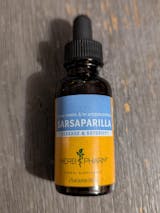What is Horehound Herb?
Horehound is a somewhat forgotten herb that nevertheless has powerful health-boosting properties. It has been used for centuries for all kinds of respiratory ailments and is one of the main ingredients in Ricola cough drops.
This somewhat bitter herb also acts as a digestive aid and can be taken as a tea, tincture, or herbal cough drops. Here's more about the benefits of horehound you might be missing out on and why you might want it in your herbal cupboard.
Horehound (Marrubium vulgare) is a member of the mint family and is native to regions of Europe, Africa, and Asia. It now grows widely across many countries and continents, including North America.
A perennial plant, horehound looks very similar to its close cousin, mint, and has the familiar square stem and light green leaves that are fuzzy. It's more bitter than related herbs, like peppermint or spearmint, but still has definite minty undertones.
Horehound also resembles mint in its growth habit.
In some areas, it's considered an invasive weed due to its "enthusiastic" nature. However, weeds make some of the best medicinal herbs and are easily cultivated if you want to have a shot at growing them in your garden.
The common name "horehound" has uncertain origins.
Some experts believe it's a reference to the ancient Egyptian use of this herb where it was supposedly called the "Seed of Horus." Others think it may stem from the Old English word "hoar," which means white (referring to the flowers).
Regardless of where its name originally came from, there's no doubt that horehound has been used for thousands of years, especially as a remedy for coughs, colds, and other respiratory conditions.
What are the Benefits of Horehound?
Respiratory Support & Cough Relief

Though not used nearly as often today as it used to be, horehound is one of the oldest remedies for coughing and respiratory issues. It has seen use for bronchitis, dry cough, asthma, whooping cough, and tuberculosis- just to name a few examples.
Horehound has expectorant and mucolytic properties, which means it can help loosen mucus in your chest and promotes productive coughing. However, it also has a soothing effect that makes it useful in cases of dry or chronic coughing as well.
There haven't been many studies on horehound, but some research does show that it has antispasmodic properties, which explains some of its benefits for coughing. (1)
By calming spasms in the respiratory tract, it may help decrease the need to cough and ease breathing.
Promotes Good Digestion
Horehound is full of bitter compounds that make it an excellent digestive aid. This is probably what it has most been used for throughout history, after cough and cold support.
Bitter herbs are some of the best digestive tonics because they stimulate the production of saliva and digestive enzymes that help your body to break down food. They also stimulate the production of bile in the liver, which is good for both liver health and optimal digestion.
Getting your digestion operating effectively has many benefits. It can lead to less indigestion, constipation, gas, and bloating and means your body will absorb nutrients from food better.
Bitter herbs, including horehound, can also act as an appetite stimulant for those who may have trouble eating or are coming out of convalescence. (Don't worry, they won't stimulate your appetite if it doesn't need it!)
Supports Immunity
Horehound isn't one of the strongest immune-boosting herbs, but it does contain antioxidants and other plant compounds that strengthen your immune system and support your body through illness.
This is another reason horehound was used so frequently during respiratory sicknesses.
Another one of the benefits of horehound for immune health is that it possesses antimicrobial properties. Studies have shown that it has activity against certain types of bacteria, fungi, and viruses, so it may help your body fight off an infection before it takes hold. (2)
May Ease Inflammation and Pain

The antioxidants in horehound have shown anti-inflammatory action in studies. There's also indication that the herb has analgesic (pain-relieving) properties as well. (1)(2)
This ability to combat inflammation definitely plays a role in the supportive nature of horehound for your respiratory system and can also help soothe a sore throat. For a sore throat, you can try it as a tea (add raw honey for extra soothing power) or a gargle.
In the past, horehound has even been used for various skin issues related to inflammation, including mouth ulcers and skin rashes.
Promotes Sweating & Detox
One of the most interesting benefits of horehound is that it induces sweating. This may not sound very helpful, but it does have a few beneficial uses.
For example, sweating is one way to help flush toxins out of your body, including salts and bacteria. It can also help your body get rid of a fever more quickly by "sweating it out"- yet another reason horehound is useful during sickness.
Is a Smokable Herb
Though any type of smoke stresses your lungs, herbal smoking blends are much better for you than tobacco products and have been used for centuries. They can be used occasionally for supportive benefits or to help yourself quit tobacco.
Horehound is one example of a smokable herb that can be added to a blend. It provides respiratory support and may increase coughing, so it's best when used in small amounts and blended with a base herb (like mullein).
How to Use Horehound?
The easiest way to take horehound is to use the dried herb to make a tea. You can simply pour just boiled water over about a teaspoon of the herb and steep for 5-10 minutes before straining the tea. Horehound is bitter, so you may want to add a little honey before drinking.
Horehound can also be taken as an herbal extract, which is especially good for digestive support (tea is usually better for sore throats and coughing because it coats everything on the way down).
You can also still find herbal horehound cough or throat drops to suck on as needed when you feel under the weather.
What are the side effects of Horehound?
Although horehound is generally a safe herb, it should not be used while you are pregnant or breastfeeding.
There's some indication that large amounts of horehound can cause stomach upset, irritate peptic ulcers, or cause an irregular heartbeat in certain people. This is rare, but always pay attention to how your body reacts to an herb and consult your physician as needed.
Rediscovering Horehound
Just for its respiratory benefits alone, horehound deserves to be "rediscovered" and added to the list of supportive herbs for sickness. It's worth keeping some on hand to help ease a cough or to use as needed for digestive support.
If you haven't yet, try making some horehound tea the next time your lungs need support and discover why this herb has been treasured for thousands of years.
Disclaimer: This post is for informational purposes only. It does not constitute medical advice and should not be substituted for medical advice. Please consult your health care provider, herbalist, midwife, or naturopathic physician before taking herbs, supplements, etc. Here's the link to our full disclaimer.




























































































































































































